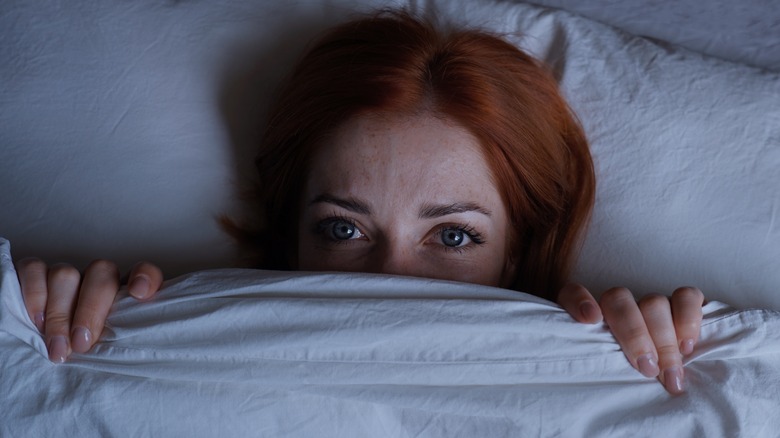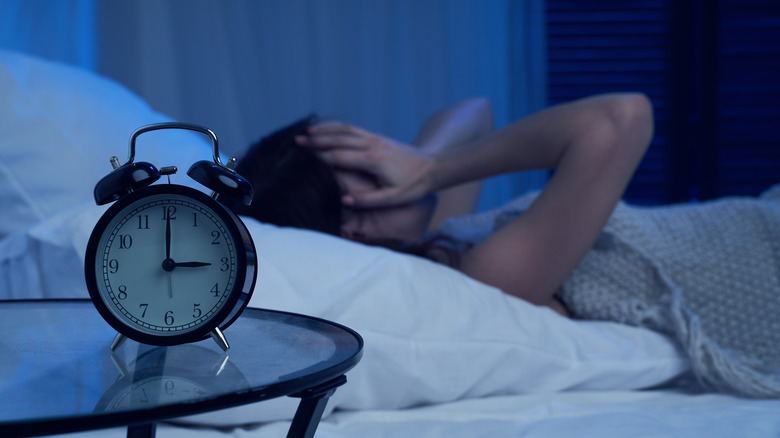What Is Sleep Anxiety?
Per the National Institute of Mental Health (NIMH), about 12% of the American population will experience a phobia or an unexplainable fear of a particular thing or practice which is usually harmless. Some people experience sleep anxiety, which may become so severe that it becomes somniphobia or hypnophobia. It is a type of anxiety disorder that causes an irrational fear of falling asleep, explains Cleveland Clinic. These people are so afraid of going to sleep that it often interferes with their sleep schedules and they may end up sleep-deprived.
According to Sleep Health Solutions, this fear usually stems from underlying anxieties related to death, night terrors, sleep paralysis, or nightmares. Such people may also be afraid of falling asleep alone. The simple habit of taking rest gives them extreme anxiety, and ultimately, this could lead to chronic insomnia.
Sleep is critical to your physical and mental wellbeing (via Healthline). It can help you shed extra pounds, boost your brain health, reduce your risk of heart disease, diminish your chances of depression, and even make your immune system stronger. Since people with sleep anxiety are unable to rest well, their productivity and lifestyle are severely affected.
How to live with sleep anxiety
Sleep anxiety causes a plethora of symptoms. You might often feel irritable or moody because of lack of sleep, according to Cleveland Clinic. You would usually stay up late and delay going to bed. Additionally, your appetite could be affected (via Sleep Health Solutions). Continuous sleep deprivation can prevent you from performing well at work and school by decreasing your memory and productivity. Sleep deprivation can also mess with your heart health, leading to an increased risk of heart disease, warns the American Psychological Association.
This condition is diagnosed by a trained professional, reports Cleveland Clinic. They might inquire about the frequency and severity of your symptoms to confirm whether or not you have sleep anxiety. After diagnosis, you may be prescribed various medications and therapies to deal with the issues causing somniphobia symptoms (via The Healthy). For example, you may be requested to follow a strict sleep schedule or start writing in a journal to deal with stress.


